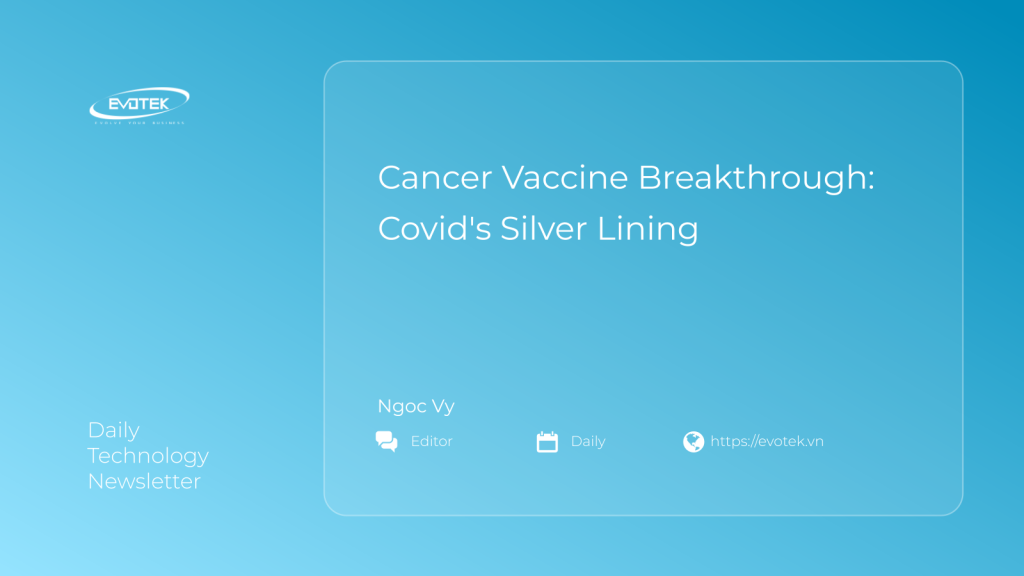The rapid development and deployment of mRNA Covid-19 vaccines have unexpectedly accelerated cancer vaccine research. What was once a struggling field is now brimming with potential, thanks to the proven success of mRNA technology.
From Covid to Cancer: A Technological Leap
Dr. Lennard Lee, a leading oncologist and advisor to the UK government on mRNA cancer vaccines, sees the pandemic as a pivotal moment. The mRNA technology, pioneered by companies like BioNTech and Moderna, demonstrated its efficacy and safety, paving the way for innovative cancer treatments.
“Cancer vaccines weren’t a proper field of research before the pandemic,” Dr. Lee explains. “With the pandemic, however, we proved that mRNA vaccines were possible.”
How mRNA Cancer Vaccines Work
These vaccines work by instructing the body to produce harmless fragments of cancer-related proteins. This process educates the immune system to identify and destroy cancer cells displaying these proteins. It’s like providing the immune system with a detailed “wanted” poster for cancer cells.
Personalized Medicine: A Bespoke Approach
Current trials involve a personalized approach. A biopsy of the patient’s tumor is sequenced, and a unique vaccine is created based on the specific genetic makeup of their cancer. This bespoke vaccine targets the individual characteristics of the patient’s disease.
“In the current trials, we do a biopsy of the patient, sequence the tissue, send it to the pharmaceutical company, and they design a personalized vaccine that’s bespoke to that patient’s cancer,” says Dr. Lee.
The UK’s Cancer Vaccine Launch Pad
Recognizing the potential, the UK established the Cancer Vaccine Launch Pad to expedite cancer vaccine trials. This initiative leverages the UK’s advanced genomics capabilities and proven track record in vaccine research.
The UK government has forged partnerships with BioNTech and Moderna, investing in research and manufacturing facilities to provide access to personalized cancer treatments for thousands of patients.
Accelerating Clinical Trials
The pandemic demonstrated that clinical trials can be conducted much faster than previously believed. By streamlining processes and utilizing digital tools, the UK has significantly reduced the time it takes to bring new treatments to patients.
“We showed the world that it could be done in a year if you modernize your process, run parts of the process in parallel, and use digital tools,” Dr. Lee notes.
Hope on the Horizon
Several mRNA-based cancer vaccines are in late-stage clinical trials, with promising results. One trial, focused on preventing the recurrence of skin cancer, has already completed, and results are expected by the end of 2025 or early 2026.
If successful, this could mark the first approved personalized mRNA vaccine, a remarkable achievement within five years of the first licensed mRNA Covid-19 vaccine.
The rapid advancements in mRNA technology offer a beacon of hope in the fight against cancer, transforming the landscape of treatment and potentially saving countless lives.
- mRNA Technology: The key to unlocking personalized cancer vaccines.
- Clinical Trials: Expedited processes are bringing new treatments closer to reality.
- Personalized Medicine: Tailoring vaccines to individual cancer profiles.

 日本語
日本語 한국어
한국어 Tiếng Việt
Tiếng Việt 简体中文
简体中文